‘The vast majority of people in the UK today say they are not religious – and this isn’t a new thing’
Rationalism not religion holds the key to resolving global turmoil, insists Andrew Copson of Humanists UK. Dan Carrier talked to him
Thursday, 5th December 2024 — By Dan Carrier
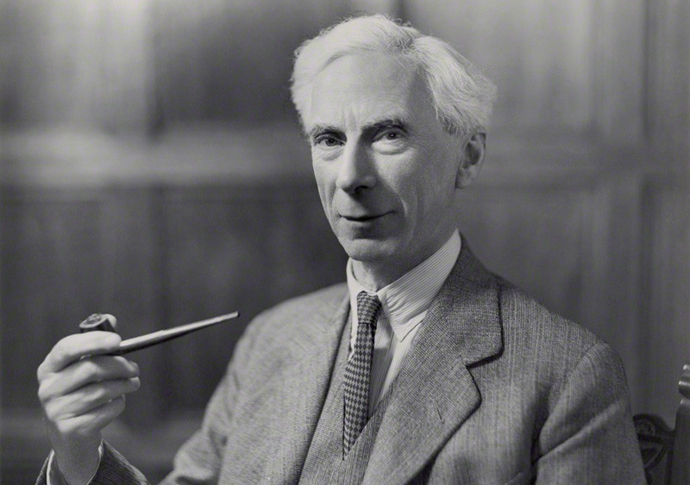
Bertrand Russell
AS the House of Commons voted in favour of a bill to legalise assisted dying last week, we heard a slew of arguments by those who base their morality on the belief of a creator.
For those who do not subscribe to a religious story to explain the sanctity of life, Humanists UK chief executive Andrew Copson was busy making the argument for a rational and secular approach to such an emotive issue.
This public consideration of a crucial ethical subject comes at an opportune time for a new book, edited by Andrew. It is launched next week and lays out a diverse manifesto of Humanist thought.
Andrew explains how important this conversation is right now. The impact of religious belief on politics and society is pronounced, and isn’t disappearing: for example, the recent US election has put a Christian Fundamentalist Theocracy in the White House.
In the face of powerful interests, Andrew says, humanism has to reiterate rationality, and in What I Believe a range of voices lay out fundamentals.
“A humanist thinks the universe can be understood through reason, and that life is progressive and dynamic,”says Andrew. “It is about considering all ideas, values, and beliefs.”
He has previously written guides that lay out the creed: titles include The Little Book of Humanism; Secularism: Politics, Religion and Freedom, and How To Be A Happy Human.
For this latest work he drew on a podcast series he created to illustrate humanism through art, politics, history as well as activism and duty, the world and the environment, age, change and time.
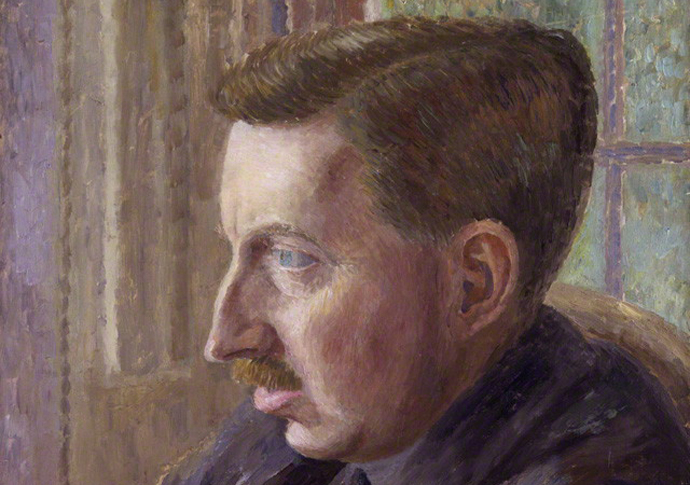
EM Forster by Dora Carrington
Contributors range from quantum physics professor Jim Al-Khalili to the former Highgate ward Green councillor and now MP Sian Berry.
Others include Montaigne biographer Sarah Bakewell, Lord Alf Dubs and historian Alice Roberts. From this wide range the pieces have common threads.
Andrew describes them as “a desire to know the world and seek out truth; a respect for both human creativity and human reason; a humanitarianism that seeks to reach across all boundaries and borders; an appreciation of human diversity, not just as the necessary consequence of human freedom (another commission value), but as something beautiful and fascinating in itself.”
He points out that humanist values are distinct, stand on their own, and are global. Of course, he says, there are places where humanism overlaps with Judeo-Christian thought, but it also has similarities with many other cultural movements.
“Three main headlines emerged from these conversations,” he says.
“Some interviewees dwelled in particular on curiosity, a love of truth and knowledge; others on their fascination with and love for human beings; others on social values like justice and fairness. In every single case these concerns overlapped and were interrelated, but to give some structure to the book they formed the three section headings for this collection.”
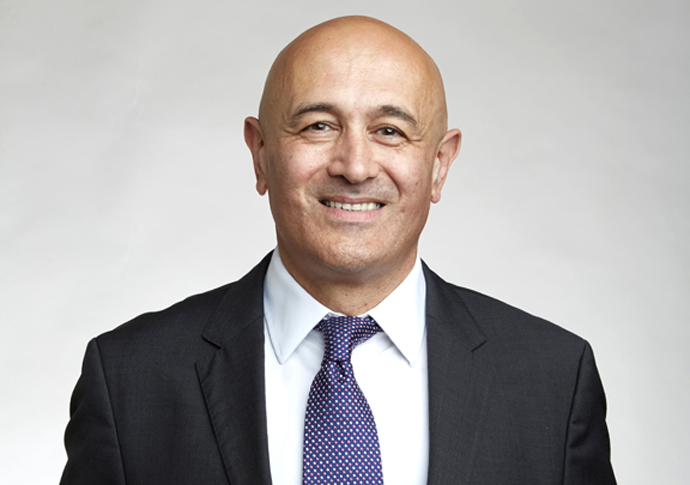
Jim Al-Khalili [The Royal Society]
The title What I Believe comes from essays by Bertrand Russell in 1925 and EM Forster in 1938.
These celebrated thinkers, whose views were forged in reaction to tumultuous times, sought to use common sense language that would be approachable.
It struck a nerve. The human race had committed mass murder in the trenches and had not learned a lesson, as the evils of Nazism took hold. Fundamental questions needed to be asked. “They set out clear and interesting takes on the world,” adds Andrew. “Both were humanists, but in very different ways.”
A follow-up, I Believe, was published in 1940, this time with a range of contributors including HG Wells, Havelock Ellis, JBS Haldane. It remained in print for more than a quarter of a century.
What I Believe came out in 1966, but differed as the publishers gave space to monotheists, with six Christians chipping in.
Today, the volume returns to themes that Russell and Forster would recognise. “There are lots of things the pieces down the years have in common – to understand the world better is a key,” he adds.
Andrew says the 1966 volume reflects the times: there was a pushback in the 1960s, a fight against progressiveness epitomised by a censorious BBC.
He points out the national broadcaster is still unashamedly a platform for preaching religion: religious speakers are on every day through Thought For the Day, and it is reluctant and unable to hold the monarchy to account or discuss a constitution.
The podcast aimed to redress this imbalance by asking simply: What do you believe?
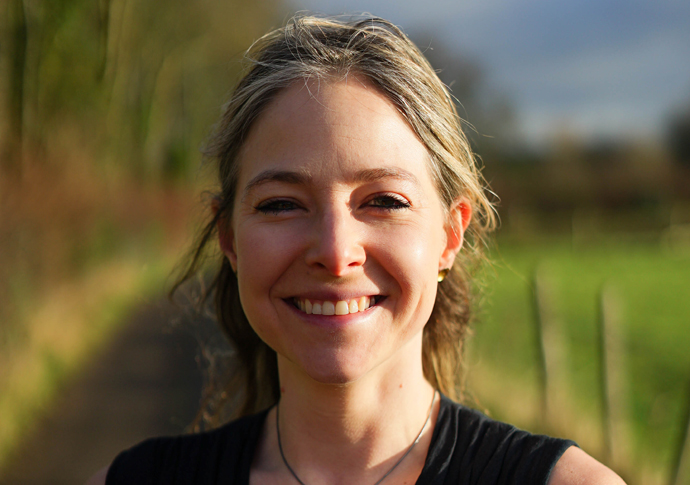
Alice Roberts [Dave Stevens_CC BY-SA 4.0]
“I’ve been struck by the range,” he said. “Contributors have wide motivations and fascinations.”
Andrew has a background of rational influence. “I was born into a Humanist family and a secular environment,” he says.
“I grew up in the industrial Midlands, in a mining town. It was a working-class culture where churches did not provide childcare, the Miners’ Welfare Schemes did,” he recalls. “I went to a multicultural primary school that was inclusive.”
At university Andrew studied Ancient History – giving him a grounding in the Stoics and other philosophies that Humanism evolved from.
“I went from this secular, co-operative environment to an elite classics environment,” he says. “I missed out on all the Christianity and religion en route.”
Studying classics helped affirm his rational belief system.
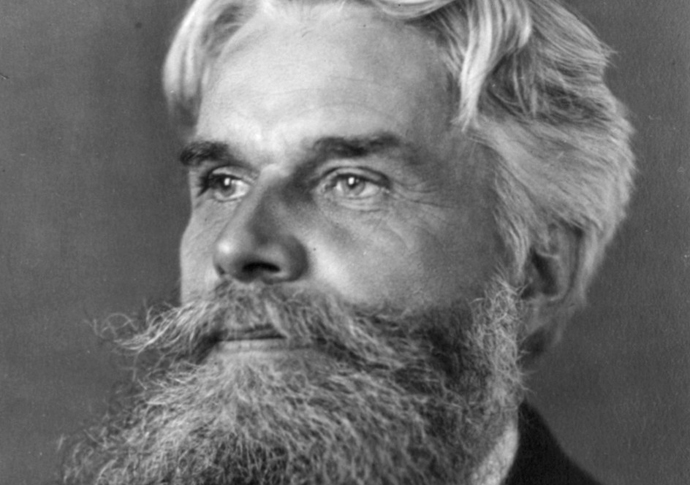
Havelock Ellis
“The ancients are great examples. The Stoics were strongly secular and humanistic in how they looked at ethics and the human condition,” he adds.
He joined Humanists UK in 2002, as the Tony Blair government sought to expand the number of state-funded faith schools.
“I had thought our society would progress, be more open and progressive. It felt like a backward step.”
He became the chief executive in 2009.
“We have people from different cultures and backgrounds, from around the world and from different worlds – aristocrats and the working class, people of different ages and different professions, scientists, actors, novelists, economists,” he adds.
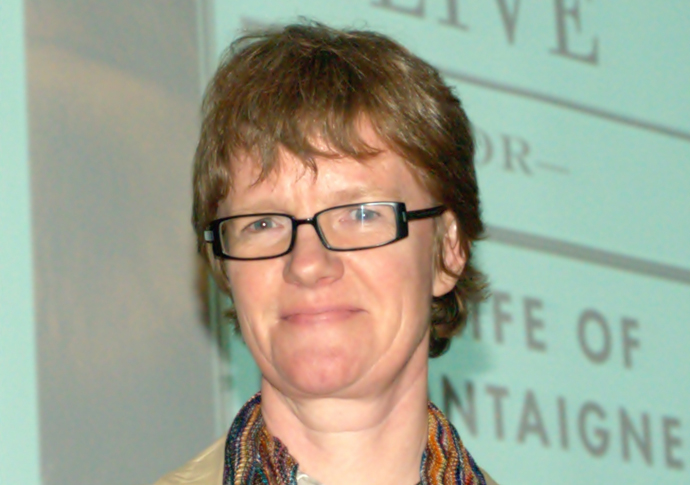
Sarah Bakewell [David Shankbone_CC BY 3.0]
The new volume is timely. We are being asked the same questions today as society in the 1920s and 1930s faced.
“The themes are the same because we face the same problems,” he says.
“The parallels between now and the books in the 1920s were clear.
“EM Forster warned against totalitarianism. The similarities today are sadly obvious, and the contributors touch on this. We live in troubling times. This restatement of principles is vital.”
Themes are approached from various angles.

Siân Berry MP [House of Commons]
“Common ground includes the fact we have to take our destiny into our hands, that you have to understand, and apply reason and evidence. It is about how we can we be engaged citizens. Today there are worries about the future of democracy. Contributors consider how can people ensure they are actively involved and informed, and how can you counter lies.”
The book is also a reminder that ours today is not a religious society.
“It is worth remembering actually how un-Christian our country is,” says Andrew.
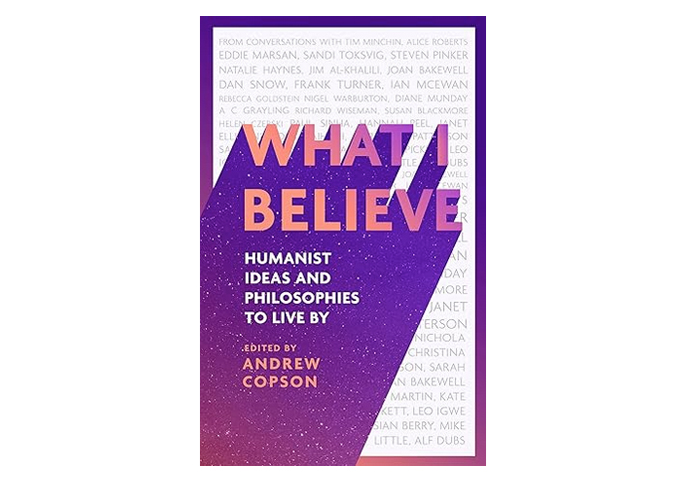
“Figures show 90 per cent of people do not go to worship or believe in a god. The statistics speak for themselves – the vast majority of people in the UK today say they are not religious. And this isn’t a new thing. Even in the 19th century, the majority of people did not go to church. The UK has never been like the USA in that way. There has long been an indifference.
“But what is ironic is we have one of the least religious societies in the world, but one of the most religious states, in terms of the relationship between the state and church.”
• What I Believe: Humanist Ideas and Philosophies to Live By. Edited by Andrew Copson. Piatkus, £16.99
• Andrew Copson is hosting What I Believe: an evening with Alice Roberts and Natalie Haynes on December 11 at the Knowledge Centre, The British Library, 96 Euston Road, NW1 2DB. 7.30-9pm. Livestream ticket £8; general ticket plus a copy of the book £20. Register at: humanists.uk/events/what-i-believe-launch/